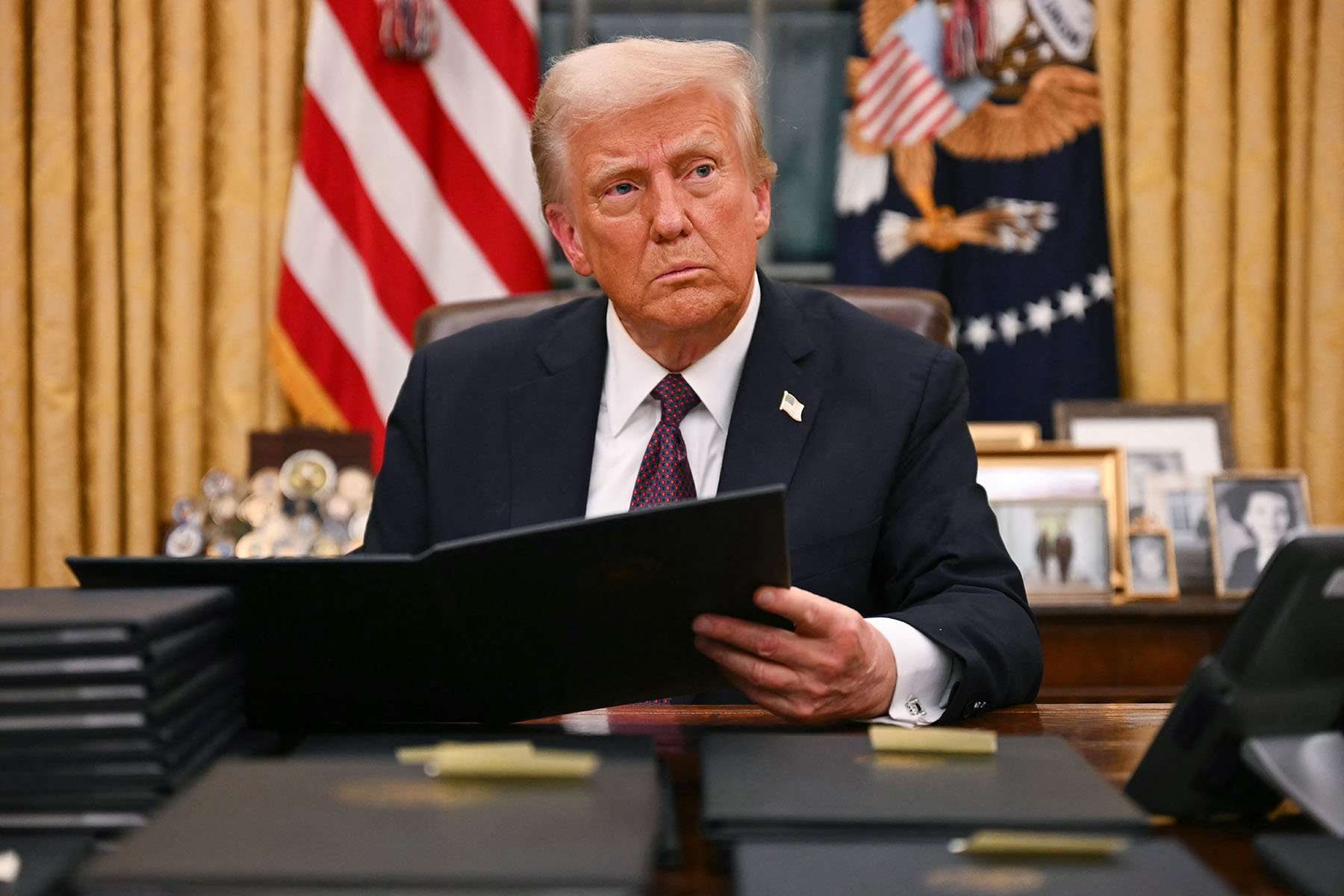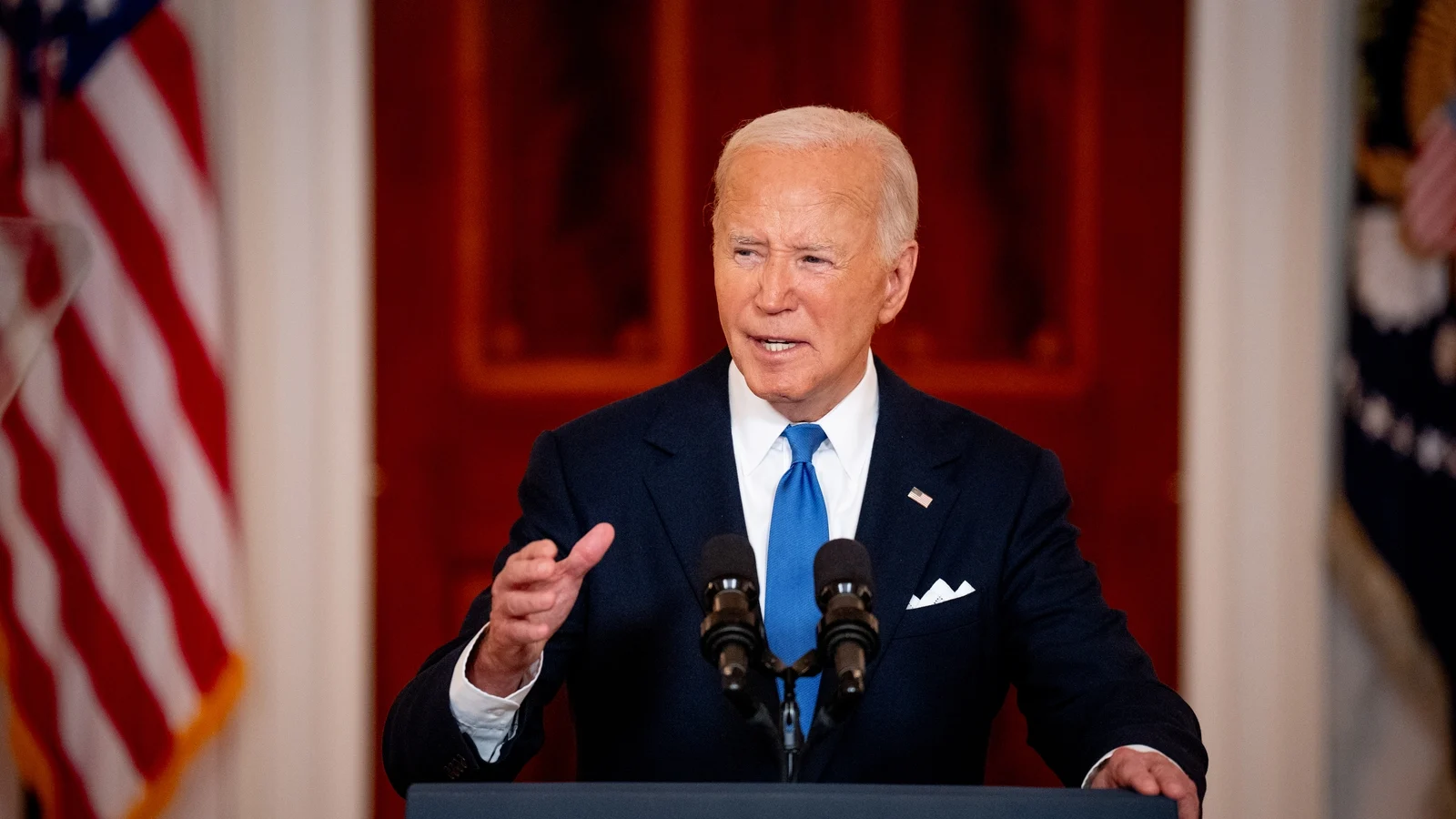U.S. President Donald Trump has ignited a legal and political firestorm by signing an executive order to end automatic citizenship for children born in the United States to parents who are in the country unlawfully or on temporary visas. This order, part of Trump’s broader Agenda47 platform, aims to challenge more than a century of legal precedent and constitutional interpretation.
The executive order, signed on Monday at the White House, is set to take effect in 30 days. It seeks to reinterpret the 14th Amendment, which has long been understood to guarantee citizenship to nearly all individuals born on U.S. soil. Advocates argue that this policy change undermines the constitutional promise of equal citizenship, while Trump maintains that it is necessary to protect the nation’s sovereignty and security.
During a press briefing on the day of the signing, Trump doubled down on his stance, stating, “The federal government will not recognize automatic birthright citizenship for children of illegal aliens born in the United States. We are also going to enhance vetting and screening of illegal aliens.”
The executive order argues that the phrase “subject to the jurisdiction thereof,” found in the 14th Amendment, should be narrowly interpreted to exclude children born to individuals without legal status or temporary visa holders. Traditionally, this clause has only excluded specific groups, such as children of foreign diplomats. The Supreme Court has repeatedly upheld birthright citizenship, making Trump’s policy a significant legal challenge to existing precedent.
Legal Backlash Begins
Shortly after the order was signed, immigration advocacy groups filed a lawsuit in the U.S. District Court of New Hampshire. Represented by organizations such as the American Civil Liberties Union and the American Immigration Council, the lawsuit argues that Trump’s move is unconstitutional.
The plaintiffs contend that the 14th Amendment was designed to guarantee citizenship to all individuals born in the U.S., regardless of their parents’ legal status. They further assert that Trump’s interpretation of the Constitution would create a class of stateless children, threatening their fundamental rights and leaving them vulnerable to deportation.
The legal battle ahead could reshape the understanding of the 14th Amendment, which was ratified in 1868 to grant citizenship to formerly enslaved people. Section 1 of the amendment explicitly states:
“All persons born or naturalized in the United States, and subject to the jurisdiction thereof, are citizens of the United States and of the State wherein they reside.”
While Trump’s campaign has emphasized the need to redefine “subject to the jurisdiction thereof” to restrict birthright citizenship, critics argue that this reinterpretation contradicts decades of legal precedent and Supreme Court rulings.
A Historic Shift in U.S. Policy
Ending birthright citizenship has been a cornerstone of Trump’s immigration policy. His campaign argues that this change would close what they describe as a legal loophole that incentivizes illegal immigration and “birth tourism.”
Supporters of the policy believe it is a necessary step to preserve American citizenship’s value and integrity. Conservative legal scholars backing the move argue that the Constitution’s language supports Trump’s position. However, the American Immigration Council highlights that courts have consistently affirmed the inclusive interpretation of the 14th Amendment, making the policy a direct challenge to well-established legal norms.
The executive order’s implications are profound. By attempting to strip automatic citizenship from children born to undocumented parents or temporary visa holders, the policy threatens to exclude thousands of children from full participation in American society. Critics warn that this could lead to increased marginalization, statelessness, and family instability.
A Turning Point for Immigration Policy
As the legal challenge unfolds, the Justice Department will need to convince the courts to adopt a narrower interpretation of the 14th Amendment. The case has the potential to reach the Supreme Court, making it one of the most consequential legal battles in recent history.
Trump’s executive order marks a dramatic shift in U.S. immigration policy, highlighting his commitment to a hardline approach. Whether the courts uphold or strike down this controversial policy, the outcome will shape the future of citizenship and immigration in the United States for generations to come.




